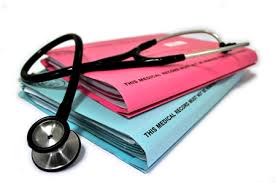A guide to understand your blood test report
Have you gone for a medical check-up before? If yes, do you understand what does the blood report tells you?
Basically, your test results will be interpreted together with your personal medical history. All these information are essential in diagnosing a disease or even to check for your health condition. Below are some of the most commonly requested blood test and the descriptions:
A guide to understand your blood test report
A guide to understand your blood test report
Have you gone for a medical check-up before? If yes, do you understand what does the blood report tells you?
Basically, your test results will be interpreted together with your personal medical history. All these information are essential in diagnosing a disease or even to check for your health condition. Below are some of the most commonly requested blood test and the descriptions:
| No. | Blood test profile | Description |
| 1. | Full Blood Count (FBC)The test might include:
|
FBC measures the amount of different types of blood cells. An FBC test alone cannot provide a definitive diagnosis of a condition but it helps to give important “clues” about possible problems. For example;
|
| 2. | Erythrocyte Sedimentation Rate (ESR) | ESR is often used to aid diagnosis in conditions associated with inflammation such as arthritis, endocarditis, Crohn’s disease and etc.It is used together with some other tests to confirm presence of infection in your body. |
| 3. | Blood Glucose | Monitoring your blood sugar level by regular blood glucose tests is very important especially for diabetic patients. If the blood glucose levels become too high, a range of serious complications may appear such as kidney related diseases or nerve damage.It is important for you not to eat for at least 10 hours before the test so that your blood sugar level would not increase during the test. |
| 4. | Lipid ProfileThe test might include:
|
This test is to provide a picture whether you are at risk of developing cardiovascular diseases (CVD) such as stroke or heart attack.High cholesterol level can effect on your health because it increases your risk of having heart attack, stroke or etc.Same as blood glucose test, this test also requires fasting before blood sampling. |
| 5. | Thyroid Function testThe test involves:
|
Lower or higher-than-average levels of these hormones means that you have thyroid problems or at risk of developing one in the future.
|
| 6. | Liver Function TestThe test mainly includes:
|
All these indicators are enzymes and proteins that will be elevated due to the damaged of the liver. This profile can help to diagnose certain liver conditions, including:
|
| 7. | Renal ProfileThis test might include:
|
A renal profile is a diagnostic test that is designed to collect information about kidney function. Any abnormalities will be compared to your medical history. |
The test profile here shows just a basic blood profile and might vary depending on the doctor’s request. The results need to be counter check with medical history and physical examinations in order to get a clearer picture of one’s health conditions.
(Source: www.nhs.uk, www.btf-thyroid.org, www.wisegeek.com)
Dr. Zaidi Zakaria
Head of Medical Services,
Pantai Hospital Ampang.



